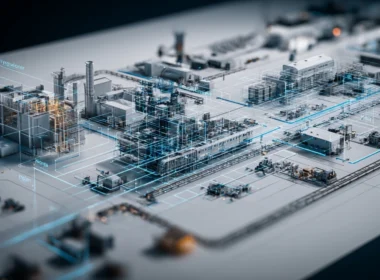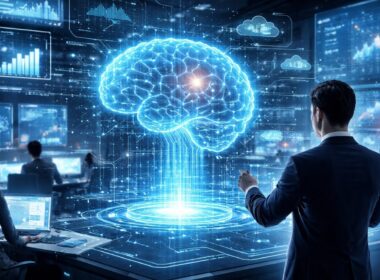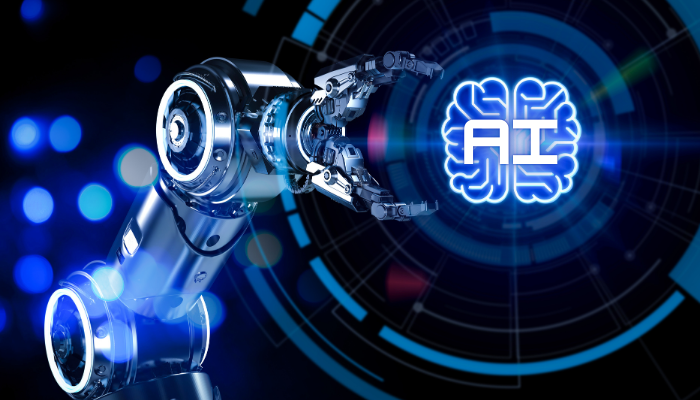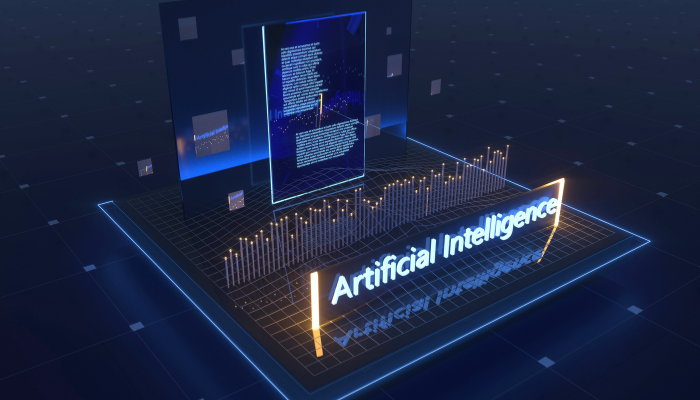You probably haven’t heard rats “talk” before. But AI has.
Scientists recently developed DeepSqueak, an AI tool that listens to the ultrasonic chatter of rodents—sounds too high-pitched for human ears. Why? Because these squeaks hold secrets about addiction, social behavior, and even mental health.
By analyzing these sounds, researchers can decode rodent emotions, helping them understand how drugs affect the brain. This could lead to breakthroughs in treating addiction and psychiatric disorders in humans.
This isn’t sci-fi. It’s happening right now. AI is being used in ways we never imagined—solving real-world problems across industries, from healthcare to finance to manufacturing.
So, let’s talk about AI use cases making an actual difference today—no hype, just impact.
AI Use Cases: Real-World Impact Across Industries
AI isn’t just about self-driving cars or chatbots—it’s working behind the scenes in industries that affect our daily lives. From hospitals detecting diseases earlier to factories preventing machine failures before they happen, AI is solving real problems in real time.
Let’s break down some of the most impactful AI applications across major industries.
AI in Healthcare: From Diagnosis to Personalized Care
AI is making a real impact in healthcare, improving diagnoses, patient care, and operational efficiency. From analyzing medical scans faster than doctors to predicting health risks before symptoms appear, AI is helping healthcare professionals work smarter, not harder.
Here’s how AI is changing the game in healthcare today.
Faster and More Accurate Medical Imaging
Doctors rely on X-rays, CT scans, and MRIs to diagnose diseases, but AI can analyze these images in seconds with incredible accuracy. AI-powered tools help detect pneumonia, tuberculosis, and even early-stage lung cancer—sometimes spotting details that the human eye might miss. AI is also helping radiologists identify osteoporosis in bone scans, ensuring early intervention.
Personalized Treatment Plans
Healthcare isn’t one-size-fits-all. AI can analyze a patient’s genetic data, medical history, and lifestyle factors to create personalized treatment plans. By using predictive analytics, AI can adjust medication dosages, recommend lifestyle changes, and anticipate health risks before they escalate. This means fewer side effects and more effective treatments tailored to individual patients.
AI-Powered Electronic Health Record (EHR) Analysis
Medical records hold valuable patient insights, but sorting through them manually is time-consuming. AI can scan thousands of patient records in seconds, identifying patterns and predicting disease risks like diabetes or heart disease. It also flags medication conflicts, reducing the chances of adverse drug reactions.
Fraud Detection and Billing Accuracy
Healthcare fraud costs billions every year, and AI is stepping in to detect suspicious patterns in billing data. Whether it’s overbilling, unnecessary procedures, or insurance fraud, AI quickly flags irregularities, ensuring resources are directed where they’re truly needed—patient care.
Remote Patient Monitoring and Virtual Care
AI-powered remote healthcare is bridging gaps in medical access. Patients can now share real-time health data from wearable devices, allowing doctors to monitor conditions like diabetes, heart disease, or high blood pressure from afar. AI can detect abnormal patterns and alert healthcare providers before a small issue becomes a major complication.
Clinical Decision Support
AI doesn’t replace doctors, but it helps them make better decisions. By analyzing patient data, lab results, and imaging scans, AI can highlight patterns that may suggest the best treatment options. Over time, AI continues to learn, refining its recommendations based on new medical research and patient outcomes.
AI in Retail: Smarter Inventory, Better Shopping, and Faster Sales
Retailers are using AI to understand customers, manage inventory, and improve pricing. With AI-driven insights, businesses can sell smarter, reduce waste, and improve customer experiences both online and in stores.
Personalized Shopping Experiences
AI helps retailers suggest the right products at the right time. Platforms like Amazon use AI to analyze browsing history, past purchases, and customer behavior, driving personalized recommendations that increase sales. Retailers also use AI chatbots to answer questions, guide purchases, and offer support 24/7.
Better Demand Forecasting and Inventory Management
AI predicts which products will sell and when, helping businesses avoid overstocking or running out of popular items. Walmart, for example, uses AI to track sales in real time and adjust inventory across thousands of stores. This reduces waste, saves costs, and ensures products are always available.
AI-Powered Checkout and Security
AI is changing how people shop in stores. Amazon Go uses AI-powered cameras and sensors to let customers grab what they need and walk out—no checkout lines. AI also improves retail security by detecting shoplifting and fraud in real time.
Smarter Pricing Strategies
Retailers use AI to adjust prices based on demand, competitor pricing, and buying trends. This ensures businesses stay competitive while maximizing revenue. Companies like Zara and H&M already use AI to analyze sales trends and update pricing dynamically.
AI for Visual Search and Augmented Reality Shopping
Shoppers can now search for products using images instead of words. AI-powered visual search helps customers find exactly what they’re looking for. Retailers like IKEA and Sephora also use AI-driven Augmented Reality (AR) tools to let shoppers see how products look before buying.
Fraud Detection in Retail Transactions
AI helps prevent fraud by detecting unusual purchasing patterns and blocking suspicious transactions in real time. Visa and Mastercard use AI to protect customers from fraud, reducing chargebacks and financial losses.
Applications Of AI in Energy for Sustainable Power
Energy isn’t just about turning on lights or charging phones anymore. Behind the scenes, AI is making sure power is used wisely, outages are prevented, and costs don’t skyrocket. Whether it’s keeping the grid stable, predicting when a wind farm needs maintenance, or helping companies trade electricity like stocks, AI is quietly doing the heavy lifting. Here’s how:
Energy Demand Forecasting
AI predicts how much energy will be needed and when by analyzing historical usage, weather patterns, and real-time demand. This helps power companies prevent shortages, reduce waste, and optimize energy production.
For example, Google’s DeepMind AI reduced data center cooling energy use by 40% by predicting energy needs in advance.
Smart Grid Management
AI makes power grids more reliable and efficient by analyzing real-time data from sensors and smart meters. It helps distribute energy more effectively, prevent overloads, and reroute electricity during outages.
Many countries, including Germany and the U.S., are using AI-powered smart grids to balance electricity loads and integrate renewable energy sources.
Predictive Maintenance for Power Plants
AI detects early signs of equipment failure in power plants, wind farms, and oil rigs, reducing downtime and maintenance costs. By analyzing sensor data, AI predicts when parts need servicing before they break down.
For example, Shell uses AI-driven predictive maintenance to monitor its oil and gas infrastructure, saving millions in unexpected repair costs.
AI in Renewable Energy Optimization
Solar and wind power are unpredictable because they depend on weather conditions. AI analyzes weather forecasts, historical production data, and energy demand to optimize energy storage and distribution.
Tesla’s AutoBidder AI platform manages and trades energy from large-scale batteries, ensuring that renewable energy is used efficiently.
AI in Energy Trading and Cost Optimization
Energy markets are volatile, with prices changing based on supply and demand. AI helps analyze market trends, predict price fluctuations, and automate trading decisions to optimize costs for both energy providers and consumers.
AI for Carbon Emission Reduction
AI helps companies track and reduce carbon footprints by analyzing energy usage patterns and suggesting efficiency improvements. AI-powered solutions help industries and households use energy more efficiently, lowering emissions and costs.
Applications of AI in Transportation
AI is changing how people and goods move. Whether it’s self-driving cars avoiding accidents, AI-powered traffic systems cutting congestion, or logistics companies predicting the fastest delivery routes, AI is making transportation quicker, safer, and way less frustrating.
Self-Driving Vehicles: The Future (That’s Already Here)
Self-driving cars aren’t just a sci-fi dream anymore. AI-powered autonomous vehicles (AVs) are already on the roads, learning from real-world driving data to navigate safely.
Companies like Waymo, Tesla, and Cruise are using AI to make cars see, react, and drive with human-like precision—but without road rage. Meanwhile, AI-powered driver assistance features like lane detection, automatic braking, and blind-spot monitoring are making everyday driving safer.
AI That Predicts Traffic Before You Even Hit the Road
Traffic jams are annoying, but AI is making them less of a headache. AI-powered traffic management systems analyze road conditions, accident reports, and real-time GPS data to adjust traffic lights, reroute cars, and reduce congestion.
For example, Pittsburgh’s AI-driven traffic signals cut travel times by 25% and reduced vehicle emissions by 20%. Meanwhile, apps like Google Maps and Waze use AI to recommend faster, less congested routes in real time.
Smarter Public Transportation
AI is helping buses, trains, and ride-sharing services run on time, avoid overcrowding, and optimize routes based on demand. Cities like London and Singapore use AI-powered systems to adjust bus and train schedules dynamically, ensuring smoother commutes.
Even ride-hailing companies like Uber and Lyft rely on AI to match riders with drivers efficiently, predict peak demand, and set dynamic pricing based on real-time traffic and user activity.
AI That Keeps Planes and Trains Running
Airlines, railways, and shipping companies are using AI-powered predictive maintenance to prevent breakdowns before they happen. By analyzing sensor data from engines, brakes, and other components, AI can detect early signs of wear and tear, saving companies millions in repair costs and reducing delays.
For instance, Delta Airlines uses AI to predict aircraft maintenance needs, minimizing unexpected cancellations and keeping flights on schedule.
AI in Logistics: Delivering Packages Faster and Cheaper
AI is optimizing delivery routes, cutting fuel costs, and making sure packages arrive on time. Companies like Amazon and FedEx use AI-driven logistics to figure out the fastest, most efficient routes for deliveries while reducing emissions.
Amazon’s AI-powered robots sort and move packages in warehouses, speeding up the delivery process. Meanwhile, self-driving trucks and drones are being tested to handle deliveries without human drivers.
Choosing the right AI partner is just as important as the technology itself. Check out our list of top AI development companies leading the industry.
Applications of AI in Healthcare
AI is making healthcare more efficient, accurate, and personalized. From detecting diseases earlier than doctors to predicting patient risks and automating hospital workflows, AI is improving how medical professionals diagnose, treat, and care for patients.
AI in Medical Imaging: Spotting Diseases Earlier
AI-powered tools can analyze X-rays, MRIs, and CT scans in seconds, identifying diseases with accuracy comparable to human doctors. These AI models help radiologists detect cancer, lung diseases, and neurological conditions earlier—leading to faster treatment and better survival rates.
For example, Google’s DeepMind AI outperformed radiologists in detecting breast cancer, identifying subtle signs that are easy to miss.
Personalized Treatment Plans with AI
Healthcare isn’t one-size-fits-all, and AI helps create customized treatment plans based on a patient’s medical history, genetic profile, and lifestyle. AI-driven predictive analytics help doctors determine which medications will work best for individual patients, reducing side effects and improving outcomes.
For instance, IBM Watson Health analyzes millions of medical studies and patient records to recommend the most effective cancer treatments for specific individuals.
AI-Powered Electronic Health Records (EHRs) Management
Doctors spend hours on paperwork, but AI is helping automate and streamline electronic health records (EHRs). AI can transcribe doctor-patient conversations, summarize patient histories, and update medical records automatically, reducing administrative workload and minimizing human errors.
Companies like Epic Systems and Cerner use AI-driven NLP (Natural Language Processing) to improve medical record-keeping, allowing doctors to spend more time with patients and less time on data entry.
Predicting Disease Risks Before Symptoms Appear
AI can analyze patient history, lifestyle, and genetic factors to predict the risk of chronic diseases like diabetes, heart disease, and Alzheimer’s—before symptoms show up.
For example, Mayo Clinic uses AI-powered risk models to identify heart disease in patients early, allowing doctors to recommend preventive treatments before complications arise.
AI in Remote Healthcare and Virtual Consultations
AI-powered chatbots and virtual assistants are helping patients get medical advice without visiting a hospital. These AI tools can assess symptoms, recommend next steps, and even schedule appointments with doctors.
Wearable devices like Fitbit and Apple Watch use AI to monitor heart rate, detect irregularities, and send alerts to users and doctors if potential health issues arise.
Fraud Detection and Billing Automation
AI is making medical billing more accurate by detecting errors, duplicate claims, and fraudulent transactions. This helps hospitals and insurance companies save money and allocate resources efficiently.
For example, AI-powered fraud detection systems analyze billing patterns to flag suspicious claims, reducing healthcare fraud and ensuring payments go where they’re needed.
Beyond automation, AI is also revolutionizing how we interact with technology. Learn more about how AI voice recognition and detection tools are shaping industries.
Applications of AI in Fintech
AI is changing how banks, payment platforms, and financial institutions handle transactions, detect fraud, and provide customer support. From automated loan approvals to AI-powered investment strategies, AI is making finance faster, safer, and more accessible.
AI in Fraud Detection and Cybersecurity
AI analyzes millions of transactions in real-time to detect fraudulent activities before they happen. By identifying unusual spending patterns, AI helps financial institutions block suspicious transactions instantly and protect customer accounts from cyber threats.
For example, Visa and Mastercard use AI-driven fraud detection models, reducing false declines and preventing billions in fraudulent transactions every year.
AI for Personalized Banking and Virtual Assistants
AI-powered chatbots and virtual assistants are making banking easier by handling account inquiries, transaction history checks, and even bill payments—all without human intervention.
Banks like Bank of America’s Erica and HSBC’s Amy use AI to help customers manage accounts, suggest financial products, and answer queries 24/7.
AI-Powered Loan Approvals and Credit Scoring
Traditional loan approval processes can be slow and biased, but AI is speeding up approvals and making lending more accessible. AI analyzes credit history, transaction data, and alternative financial behaviors to assess creditworthiness in seconds.
For example, Upstart and Zest AI use AI-driven models to approve loans, helping people with limited credit history get fairer access to financing.
AI in Investment and Wealth Management
AI-powered Robo-advisors analyze market trends, risk factors, and individual financial goals to provide smart investment strategies. These AI systems automate portfolio management, reduce fees, and offer personalized financial planning.
Platforms like Betterment and Wealthfront use AI to help individuals invest wisely with little human intervention, making wealth management more accessible.
AI in Risk Management and Market Predictions
Financial institutions use AI to analyze market data, predict stock trends, and manage risks. AI can process news sentiment, trading patterns, and economic indicators to help businesses make better financial decisions.
For instance, hedge funds like Renaissance Technologies use AI-driven algorithms to analyze financial markets and identify profitable trading opportunities faster than human analysts.
AI for Automating Compliance and Regulatory Processes
AI helps financial institutions detect compliance violations, monitor transactions for suspicious activity, and reduce regulatory risks. AI-driven RegTech (Regulatory Technology) solutions automate compliance checks, saving time and reducing errors.
For example, AI-powered compliance systems in banks help detect money laundering and insider trading by analyzing transactional behaviors.
From voice banking to AI-powered chat support, Conversational AI in banking is changing the way customers interact with financial institutions. Discover its benefits, examples, and use cases.
AI is Reshaping Industries—And We’re Just Getting Started
AI isn’t just making things faster or more efficient—it’s changing how entire industries operate. Let’s put this into perspective:
🔹 By 2030, AI is expected to add $15.7 trillion to the global economy. That’s more than the combined GDP of India and Germany today. The businesses that adopt AI now? They’ll be the ones leading the next decade.
🔹 AI-powered diagnostics are already more accurate than human doctors in some cases. This isn’t about replacing medical professionals—it’s about catching diseases earlier, reducing human error, and giving doctors the best tools to save lives.
🔹 Autonomous vehicles could cut traffic deaths by 90%. Think about it—most accidents happen because of human error. AI-driven transportation could mean safer roads, fewer delays, and a massive reduction in fuel waste.
🔹 AI prevents over $10 billion in financial fraud every year. That’s billions saved from stolen credit card data, money laundering, and cybercrime. As digital transactions grow, AI will become the backbone of financial security.
🔹 AI-driven energy grids can reduce power waste by 20%. Smarter energy distribution means lower costs, fewer outages, and a stronger push toward sustainable power. AI isn’t just helping businesses—it’s helping the planet.
AI is already deeply embedded in our daily lives, whether we notice it or not. The question isn’t “Will AI shape the future?”—it already is. The real question is who’s adapting fast enough to stay ahead?
Codewave: Building AI That Works for Your Business
AI isn’t just for tech giants anymore—it’s a competitive advantage that businesses of all sizes can leverage. Whether it’s automating processes, predicting trends, or enhancing customer experiences, AI can help companies move faster, cut costs, and make smarter decisions.
But here’s the thing: AI isn’t plug-and-play. To get real results, you need the right AI strategy, the right implementation, and the right expertise. That’s where Codewave comes in.
We help businesses build AI-powered solutions that actually work—tailored to their industry, challenges, and goals. Our AI services include:
- AI Auditing & Optimization – Already using AI but not seeing results? We analyze your AI models, identify inefficiencies, and fine-tune them for maximum performance.
- Generative AI– Leverage Gen AI for automated content generation, intelligent document processing, and enhanced customer interactions.
- Process Automation – Free your teams from repetitive tasks with AI-powered automation, increasing efficiency and accuracy.
- Conversational AI & Chatbots – Elevate customer experiences with AI-driven chat assistants that handle inquiries and transactions in real time.
- AI-Powered Business Intelligence – Unlock hidden patterns in your data and turn insights into action.
The businesses winning with AI today didn’t wait for the perfect moment—they started experimenting, optimizing, and scaling.
Let’s build your AI strategy together.
Contact us today and let’s talk about how AI can make a real impact in your business.
Codewave is a UX first design thinking & digital transformation services company, designing & engineering innovative mobile apps, cloud, & edge solutions.






